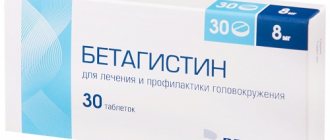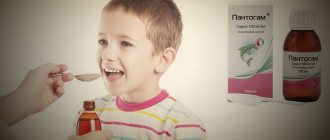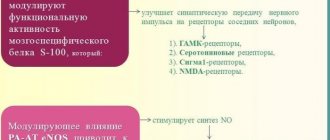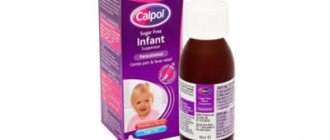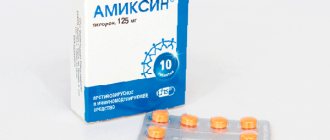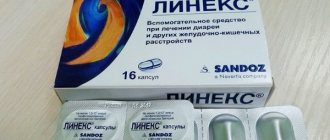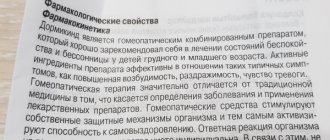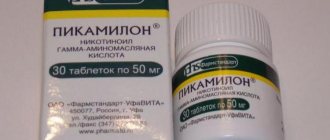Pharmacological properties of the drug Furagin
Furagin belongs to the group of antimicrobial agents - nitrofuran derivatives that have a wide spectrum of antimicrobial action. Effective against gram-positive and gram-negative bacteria; in some cases it is effective against microorganisms resistant to sulfonamides and antibiotics. The mechanism of the antimicrobial action of the drug is associated with the reduction of the nitro group to the amino group. In this case, the reduced forms of the drug have a direct effect on cellular macromolecules and electron transport in the microbial cell. Interacting at the DNA level, it causes breaks and mutations in it, which leads to disruption of its biological function. It is also assumed that the reduced form of the drug oxidizes a number of enzyme systems of microorganisms. Regarding some microorganisms, the antimicrobial effect of Furagin is higher than that of other nitrofurans. The drug is especially active against urinary tract infections.
Use of the drug Furagin
Furagin is prescribed orally after meals, washed down with plenty of water in a dose of 100–200 mg 2–3 times a day. For children over 5 years of age (body weight 20 kg), the drug is prescribed in a daily dose of 5–7 mg/kg body weight. Depending on the form and course of the disease, the course of treatment is 7–10 days. If necessary and there are no side effects, the course of treatment can be repeated after 10–15 days. For prophylaxis, the drug is prescribed 50 mg (1 tablet) 1 time per day (mainly in the evening).
Furagin indications and contraindications
Furagin is available in 50 mg tablets, powder, and granules. Tablets are used for oral administration in the treatment of urological diseases. The antibiotic does not have a systemic effect and is used primarily for the treatment of the urinary tract.
Indications for prescribing medication in tablets are cases of disease:
- cystitis;
- urethritis;
- acute and chronic pyelonephritis;
- urethritis;
- prostatitis;
- with prolonged catheterization;
- after surgery on the urinary tract.
The powder is used for external treatment of conjunctivitis, keratitis, purulent or burn wounds, fistulas caused by microflora sensitive to furazidine. The product is used to prepare a liquid for washing cavities formed during peritonitis and pleural empyema. Locally, Furagin's solution is used to wash the external organs of the genitourinary system in cases of urethritis and vulvovaginitis.
Antibiotic contraindications
Contraindications for taking the drug include cases:
- pregnancy and lactation;
- under 4 years of age;
- renal, liver failure;
- allergies to nitrofurans;
- hypersensitivity to the components of the product;
- damage to peripheral nerves;
- congenital inability to produce the enzyme glucose-6-phosphate dehydrogenase.
When buying a medicine, you need to pay attention to the excipients in its composition. Some can provoke an allergic reaction. Thus, Urofuragin and Furagin differ in their auxiliary components, although they contain the same active ingredient furazidin.
WE RECOMMEND THE ARTICLE!
Sulfadimethoxine is an inexpensive antibacterial drug that serves as a good replacement for antibiotics. Read more >>
Furagin tablets contain potato starch, and Urofuragin tablets contain corn starch. If you are allergic to corn starch, then Furagin can be treated, but Urofuragin cannot.
Prescription during pregnancy and lactation
The antibiotic is contraindicated during pregnancy due to a lack of research into the effect of the drug on the intrauterine development of the fetus. The FDA has not determined the hazard category of the drug for the fetus.
There is no data on the ability of furazidine to pass into breast milk. If the doctor has prescribed treatment with Furagin or its analogues, then the baby is temporarily transferred to artificial feeding.
Side effects of the drug Furagin
Possible decrease or loss of appetite, heartburn, nausea, sometimes vomiting, pain in the epigastric region, dizziness, allergic reactions. Sometimes neurotoxic phenomena are observed - headache, dizziness, insomnia, general weakness, increased sweating. In the described cases, the dose of the drug should be reduced or stopped altogether. Side effects are reduced when taking the drug only after meals and when drinking plenty of liquid. With prolonged use of the drug in high doses, as well as in the case of prolonged treatment with low doses, polyneuritis may occur with decreased renal function, cardiac decompensation, or alcoholism. With insufficient liver function, as well as hereditary deficiency of enzymes of the pentose phosphate cycle, acute hemolytic anemia may develop in case of prolonged treatment or use in high doses.
Side effect
Taking uroseptic may cause undesirable effects from:
- Digestive organs
. Manifested by deterioration of appetite, nausea, vomiting, stool disorders, and abdominal pain. - Nervous system
. Side effects include dizziness, inflammation of the nerves (neuritis), and drowsiness. - Sense organs
. Sometimes there is deterioration in vision. - Hematopoietic systems
. Hemolytic anemia is possible. - Immune system
. Allergic reactions develop, rash and itching appear.
Side effects of the medicine can be expressed by deterioration of health, chills, and increased body temperature. To reduce the risk of adverse reactions, antibiotic treatment is combined with taking B vitamins and antihistamines. If signs of side effects occur, stop taking the drug and consult a doctor.
Overdose of uroseptic
Violation of the instructions for use, taking the drug in a large dosage sometimes causes the appearance of:
- tremors of the limbs (tremors);
- nausea;
- liver dysfunction;
- neuritis;
- bronchospasm;
- hives.
First aid for signs of overdose is to stop the drug and take plenty of fluids and an antihistamine. Gastric lavage is done if no more than 1 hour has passed since taking the tablet, since during this time the drug has time to pass into the intestines, where it is absorbed.
There is no specific antidote to Furagin.
If the patient does not get better, then call an ambulance and take the victim to the hospital, where hemodialysis is performed.
Taking with other medications
The effectiveness of Furagin decreases when taken with medications:
- increasing the level of uric acid - thiazide diuretics, furosemide, Aspirin, Bisoprolol, corticosteroids;
- with the drug nadlidixic acid - Nevigramon capsules.
Absorption deteriorates when taken with medications that reduce the acidity of gastric juice, antacids Maalox, Phosphalugel, Vikalin, sorbents, antispasmodics No-Shpa, Drotaverine.
Absorption of Furagin in the digestive tract worsens when taking the medicine with drugs containing magnesium trisilicate. The substance is part of the Gestid product, Magtasil mixture.
Drugs containing furazidin cannot be used simultaneously with Levomycetin, Streptocide, Biseptol due to the risk of hematopoietic inhibition. The effectiveness of Furagin increases if taken with Tetracycline or antibiotics from the aminoglycoside group.
Special instructions for the use of the drug Furagin
It is prescribed with caution in cases of impaired renal function, as well as in patients with diabetes mellitus, since the use of the drug may cause symptoms of polyneuropathy. It is not recommended to prescribe Furagin for urosepsis, as well as for infection of the kidney parenchyma. During the period of use of Furagin, false-positive results of determining glucose in urine using Benedict and Fehling solutions may be observed. It is recommended to determine glucose in urine using the enzymatic method. During long-term treatment with Furagin, the level of blood leukocytes, as well as indicators of liver and kidney function, should be periodically monitored. Furagin does not affect the speed of psychomotor reactions, so it can be prescribed to patients whose activities require increased attention.
Substitutes
Analogues of the drug Furagin in the treatment of cystitis are:
- Furasol;
- Urofarigin;
- Furagin-Aktifur;
- Furamag.
Each drug for the treatment of acute or chronic cystitis has differences in use and should be prescribed exclusively by a doctor. They have certain limitations and side effects.
The cost of Furagin in pharmacies is on average 150 rubles. The price of Furasol is 350 rubles, Furamaga is 430 rubles, Urofarigin is 250 rubles, Furagin-Aktifura is 350 rubles.
A urologist or gynecologist will be able to determine which medicine is better after studying the characteristics of the inflammatory process. You should not self-medicate, despite the fact that cystitis itself is not dangerous. However, its improper treatment can cause serious complications.
Interactions of the drug Furagin
When used simultaneously with drugs of the tetracycline group, there is a potentiation of the effects of the drug, in combination with erythromycin, fusidine, nystatin, levorin - an increase in the effect; with ristomycin, chloramphenicol, polymyxins, long- and short-acting sulfonamides, nalidixic acid - mutual reduction of effect. Antacids reduce the activity of the drug by reducing its absorption. With the simultaneous use of nitrofuran derivatives with 8-hydroxyquinoline nitroxoline, the neurotoxic effect of these drugs is summed up. The drug should not be used with adrenergic agonists (ephedrine, phenamine), anorexigenic drugs, or MAO inhibitors.


